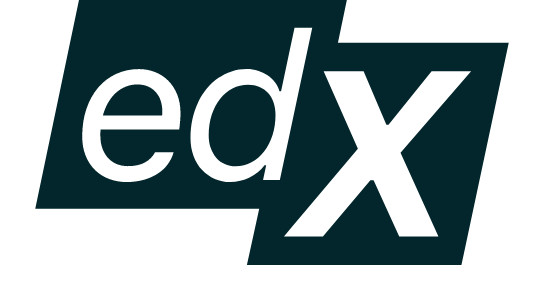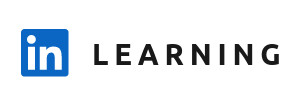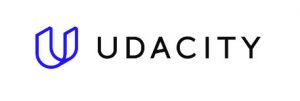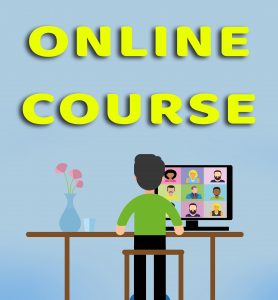Disclosure: Privacy Australia is community-supported. We may earn a commission when you buy a VPN through one of our links. Learn more.
Best Free Online Courses with Certificates (2024)

Online courses are an important part of the contemporary work ecosystem. The world is evolving fast. The indispensable jobs of today could be easily automated out of existence tomorrow if there is an economic incentive to do so.
In that kind of environment, how do you keep yourself employed?
The answer is not an easy or attractive one: Developing new skills. This is not easy because most people build their whole lives around having and developing a certain set of skills. And it is not attractive because finding high-quality, cheap education is considered a daunting task.
But that is why we are here: To shine a light on the places you can go and classes you can take that will not just give you the education you need, but the certification that the job market demands you have.
Table of Contents:
- Why are Certifications Important
- Which Online Courses are the Best to Get a Certificate
- How to Pick the Right Online Course for You
Why are Certifications Important? 👨🎓️👩🎓️
If you have never worked in fields like computer science or graphic design, certifications might seem like an odd contrivance for the industry to assert onto workers. Isn’t a portfolio of good work more important than a piece of paper saying you can do good work? Well, yes. But it is not that simple either.
The exact reason why certifications are important varies from industry to industry. To avoid giving an exhaustive list of why they matter in every industry, let’s instead look at the two previously mentioned industries: Computer science and graphic design. These will show us two very different reasons.
Computer Science 🖥️
In the field of computer science, your job is to solve problems. It does not matter if you are a designer, developer, team leader, or even the lowest rung on the code monkey ladder. Programs exist to solve problems, and when those programs develop problems of their own, programmers fix those problems.
In this situation, a portfolio of good programming work will only tell you so much about a person’s problem-solving capabilities. A certification in a certain programming speciality, on the other hand, will tell you what sort of problems have been put in front of them. You can look up the class they took and see what sort of assignments they did. And most importantly, you know what tools they can use.
Graphic Design 🖌️
Using the right tools is even more important in graphic design. Many graphic design projects end up having specific “workflows” or “pipelines”. These require a person to be versed in a specific graphic design program in order for the workflow to actually, well, flow.
If you look at someone’s portfolio of art and see a bunch of good-looking pieces, you can assume they are good at art. But you cannot assume to know what tools they are skilled in. And that means you cannot tell whether or not they will actually fit into your time. A certification can change this.
If they are certified in the use of Photoshop or Illustrator, then you know they can work with a team that uses those tools. If they are certified in Paint Tools Sai or MS Paint, then they are less likely to fit.
Which Online Courses are the Best to Get a Certificate? ➡️
With that established, let’s have a conversation about where you can go to get the best online certificates. The “best” in this case means “the most likely to get you a job”. To do that, a certificate has to encompass relevant skills, come from a recognizable place, and preferably be accredited in some way.
| Providers | Best For |
|---|---|
| 1. Udemy | Best Unaccredited Online Courses |
| 2. Coursera | Best Free Online Courses |
| 3. Edx | Best Information Technology Classes |
| 4. LinkedIn Learning | Best Business Classes |
| 5. Udacity | Best Additional Resources |
1. Udemy – Best Unaccredited Online Courses
We have established that certifications are important. But let’s talk about how certifications can still matter, even from an unaccredited institution.
The best example by far of this is Udemy.

To begin with, Udemy works much like Coursera: It has (mostly) free courses taught by industry professionals that focus on giving you the skills you will actually use while working in those industries.
But where Coursera’s focus is on pulling their lessons from existing universities, Udemy’s focus is on making sure that their lessons are as relevant as possible to the workforce as it exists now. After all, a college professor that has been teaching for twenty years might be behind the times a little bit.
This is a big part of why Udemy works so well for so many people despite not having an official accreditation. Think about it: What does it mean to be accredited? It means that an institution is acknowledged for being consistently good at providing its students with the skills they need.
While Udemy does not have educational institutions vouching for it, it does have many employers that make use of it. Many recruiters and managers know Udemy just from seeing their certificates on the resumes of many employees, as well as referring employees to Udemy for further training.
In short, even though Udemy is not accredited, the education it provides is recognized the world over.
Drawbacks 👎️
Of course, that still does not amount to official accreditation. Many people will be concerned that if their place of education lacks that arbitrary stamp of approval, their job applications might be rejected out of hand. And you know what? They are right. In some fields, that is.
There are some industries, and some companies in particular, that receive so many job applications that processing all of them in a timely manner is physically impossible. As a result, their focus turns to automation: They program computers and resume-reading bots to process resumes for them.
This means that even if a recruiter would recognize Udemy, a recruiter might never look at your resume because a machine rejects it for not containing the name of an accredited institution.
The worst part of these systems (besides the fact that they commonly reject dozens of viable candidates for jobs) is that it is impossible to know which companies precisely make use of them. It is known that many do, but one can only guess. The safest bet you can make is that bigger companies do this.
In short, Udemy might be one of the best places to get your skills and build real industry connections, but it falls short in an incredibly arbitrary way. So, use it to build your skills, but be wary of its ability to get you a job.
Pros
- Teachers work within the industry and know about current trends
- On-demand classes as well as live classes
- Recognized by many employers and recruiters
Cons
- Not accredited and some classes cost money
2. Coursera – Best Free Online Courses
Any Google search you do with the words “online course” in them will probably return something relating to Coursera.
That might make it sound like a service with an overinflated marketing budget, but the reality is that it is simply one of the best resources for online classes out there.

The reason why is simple: It pulls together free online classes from dozens of different universities all over the world. There are classes from Yale, Stanford, John Hopkins, and tons of other universities that are well-known for producing some of the best education in history, with courses in multiple languages.
With a pedigree like that, you can be sure to get a certification that will make any employer take notice of you. But they offer more than just fancy pieces of paper. The teachers are usually highly respected experts in their respective fields, meaning you get two important things: The first is a good education. And the second is a strong connection.
You will have someone reviewing your work that you can talk to about how to improve, as well as where to go to find the shortest path to gainful employment.
All of this is free, which is the really special part. All and all, the reason why Coursera comes up whenever you look for free online courses is because there was always going to be something like it. The internet makes the exchange of information too easy and efficient to not have a place like Coursera.
Drawbacks 👎️
The biggest issue that Coursera has is volume, particularly as it pertains to beginner classes. Most people take beginner classes and then give up. To support this demand, Coursera supplies primarily beginner classes. This means that your options for how to continue an education are far more limited than your options for how to start one. This also means that some classes will be hard to find.
Adding to this, there are not that many on-demand class options. This means that you can only really get an education from Coursera if you have the time to sit in on one of their classes. Since most people who need online classes are working professionals with families, this is a bit restrictive.
Pros
- Huge selection of classes
- Everything comes from prestigious universities that are all accredited
- The teachers are university-level professors with years of experience
Cons
- Hard to navigate through all the classes they have and lacks on-demand courses
3. Edx – Best Information Technology Classes
You don’t need an article on the internet to tell you that information technology has been a booming industry for the last twenty years.
Just like the automotive industry before it, IT has given many people jobs that have served as both pathways to contributing to society as well as financial stability.

And as more and more jobs disappear or become economically unviable, more and more workers find themselves forced to turn to this industry for employment. But due to the demand of the industry, they often find universities prohibitively expensive, not to mention time-consuming. What does one do?
Edx is the answer to that question. They fill basically every requirement of a vocational school while having the accreditation of a university and the responsiveness of an online school.
What that means is that their teachers are professionals that give object lesson assignments, making them perfect for learning what is going on in the field. The courses are provided by the leading heads of IT education, ensuring your resume gets noticed.
They also have other classes as well, though their IT classes are the ones that have the highest job placement. That means if you want to take side classes in philosophy, economics, business management, or other miscellaneous fields, those are available to you as well.
Edx offers two things: Options and opportunities. The options come from all the different disciplines they have ready for you to explore. The opportunities come from the teachers, the connections they can make you, and the skills they can impart to you that work both theoretically and in practice.
Drawbacks 👎️
Most of Edx’s classes are technically more similar to video tutorials than normal university classes. This means that while you can still reach out to the teachers, you are not going to get the highly responsive tutelage that you might expect out of a live class, or especially a real-world university experience.
Some people just cannot learn this way. And it is a shame because on-demand classes have the massive upside of being easier to schedule than live classes. But even in those cases where on-demand classes are a good thing, everyone generally knows that they are getting a lesser product.
It has nothing to do with the teachers, their curriculum, or anything else that is under anyone’s control. It is all a matter of what an on-demand class can (or rather, cannot) provide. There is no raising your hand to ask questions in an online class. Nor is there a personalized review of your work.
Most work will be done in isolation and graded by machines. This is part of the reason why Edx’s IT classes are easier to recommend than their other classes: A programming class can ask for an exact response to a problem where a business or philosophy class cannot.
Pros
- Tons of options for IT fields and specializations
- Totally free classes
- On-demand, making them easy to schedule
Cons
- Some people will find it hard to get a lot out of online classes
4. LinkedIn Learning – Best Business Classes
On one hand, it is no surprise that a site made for searching through job listings would have a great series of learning tools for helping people get those jobs.
And yet, on the other hand, LinkedIn seems to be the only site of its kind that is interested in such a venture.

As strange as that gap in the economy is, LinkedIn fills it quite well. Whereas Edx focuses mostly (though not completely) on information technology, LinkedIn focuses on business. But just what is “business”?
That is a harder question to answer than you might think. Moving money around is one of the strangest practices in the world, and yet at the same time is clearly the most lucrative. But obviously to reduce business down to just “moving money around” is not only disingenuous but plainly incorrect.
The real core of the business that LinkedIn teaches is understanding how systems of value work. You see, value is sociological. It emerges from interactions between people, as well as the relationships between people and their environments. But it is also practical. People have certain needs no matter what their environment is. What LinkedIn’s class teaches is how to seize both those needs as opportunities.
The classes are both on-demand and in person, and once more you are being taught by industry professionals (you might have noticed that is kind of a requirement). These classes can focus on everything from securing start-up loans, to how to hire employees, and how to manage teams. You can currently choose from over 20.000 courses and Learning Paths, dozens added each week.
Drawbacks 👎️
LinkedIn is a little new to the world of online classes, and it shows. While all of its classes provide some sort of certificate for completing them, not all of them are actually accredited. They are not exactly forthcoming about this, so some people can be surprised when they start hearing about it.
Granted, similar to Udemy, most employers know what LinkedIn is (though an amusing number of them do not). But that reputation is lost in the field of education. People have trouble accepting that a job-hunting platform can do multiple things, so its education is not taken seriously.
And finally, LinkedIn’s courses are currently not that broad. They have a lot of depth in the courses that they do provide, but their classes go deep on a lot of concepts that are not very concrete. That is the central tension of understanding business for most people: Understanding systems of value is an essentially abstract idea. Putting that abstract idea into practice is extremely difficult.
LinkedIn will give you both the theory and the opportunity to practice that theory, but it does not connect those two points with perfect elegance. Maybe in the future, it will, however.
Pros
- Some of the best classes covering business concepts on the internet
- Integrates easily with LinkedIn’s job searching and profile functionality
- Professors are professionals that are easy to reach out to due to the platform
Cons
- Highly abstract classes, does not teach much more than business
5. Udacity – Best Additional Resources
Most online schools design themselves so that they live and die on the quality of their classes.
This is good and understandable; most people are never going to use more of what an online course offers than the classes themselves. Putting time and money into other resources is a wasted effort.

But just because it is wasted on a majority of people, that does not mean it is meaningless. For the people that do make use of those additional learning tools, those tools might be the difference between success and failure. This is why Udacity exists: To serve online learning in a number of different ways.
Udacity’s classes are good on their own. They are all live classes, and some of them cost money. But as usual, they have a good spread of subjects, professionals in teaching positions, and teach skills relevant to their industries. But that is not what sets Udacity apart from other online learning centres.
What sets them apart is the fact that they offer a huge library of information and classes apart from the main courses. This means that in addition to the live classes, you also get on-demand classes that can help you along with those classes if you are having trouble in some way.
You also get information on how to solve specific problems. And since the problems you are solving in your main courses are reflective of what you will deal with in your industry, these on-demand lessons can be as valuable to you professionally as they are academically.
Perhaps one of the most unique things that Udacity has to offer is its career centre. Most universities will have a career centre, but few online schools bother with them due to the prevalence of online job sites. Udacity helps you find the places that are hiring and construct your class schedule to get hired.
Your schedule, your resume, your workload, everything can be set up for you before you even start your classes. Few universities do that much for their students, saying nothing of online classes.
Drawbacks 👎️
The issue with Udacity is that its classes are only mostly free. All of its higher learning opportunities cost money. This essentially means that while its classes are free, its certifications are not.
Luckily its certifications are accredited, so you are actually paying for something worthwhile. But the classes are also all live online, meaning that you have to schedule a lot of time for them. This can be troublesome to anyone who is currently working, meaning that you are dedicating a lot of time and sometimes money to something that is not that certain.
The career services are there for you whether you pay for classes or not, meaning you can get a lot of information just by showing up at Udacity. The same goes for the on-demand classes. The lessons they provide are good enough on their own, but the experience of learning it is lessened for sure.
Pros
- Great classes covering a variety of topics
- Accredited at the higher levels
- Tons of additional lessons and career services to help you along the way
Cons
- The courses are free, but the certificates are not
How to Pick the Right Online Course for You 📝️

So, those are the best places to get free online courses with certificates. But within each of those websites, there are tons and tons of different options for career paths. How does one pick between them? It would be naïve for someone to say, “Just pick what you like doing.” That’s not economical.
There are three things to consider when thinking about what sort of online class you are looking to take. And we are going to walk you through each of them.
#1: What Work Conditions Are You Looking For?
This is a great question to ask up-front before you make any other decisions about what you want to do. It is hard to know what sort of labour one might “enjoy”.
So much of being in the workforce is doing as little as one can for as much money as one can get. Therefore, it’s important your work conditions do not antagonize you more than they need to.
Anything that you can learn through an online class will either be done working in an office or working from home. Consider those your two options. If you feel you work better in an environment separate from your home, then look for office work in the business sector. Otherwise, try something like IT.
#2: What Time Do You Have to Learn?
Not everyone has the same 24 hours in the day. Some people have families. Some people have exploitative jobs that are practically holding them hostage. If you have some difficulty committing to an online live class, then seek out courses that are done on-demand instead, or in a different time zone.
The key takeaway here should be that your circumstances might be different from other people’s. Change your classes to meet your circumstances, not the other way around.
#3: What are Your Pre-Existing Skills?
The best way to plan out your online education is to treat it like you are building resume years in advance. You can find tons of information online as to what makes a perfect resume. You probably already have the skills for your perfect resume. Online courses help you close those gaps.
Consider your existing skills, and then consider what you lack. That will help you build a plan that is practical.
Conclusion 💡️

With that, you have everything you need to in order to go from knowing nothing to getting a job. Not that such a plan is easy. Few people really do it. But many people are at least better for trying.
Just remember to not get discouraged. It is easy to get frustrated with oneself when trying to change career paths. But if you remember that you are doing something that most people fail to do, while you may be daunted at times, you will also come to appreciate your own efforts.
That’s the energy you need to drag yourself over the finish line.
You Might Also Like:



